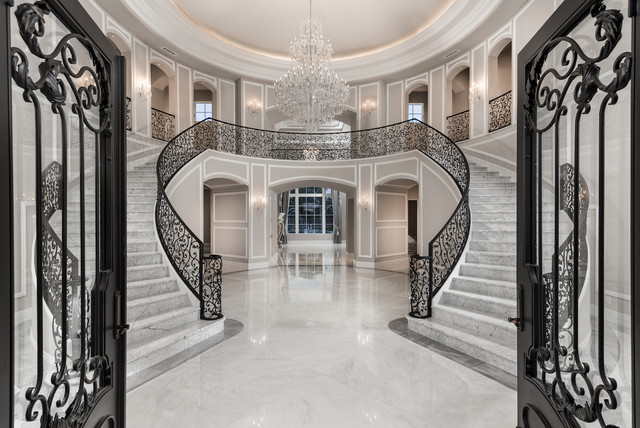
Table of Contents
- Introduction to Luxury Real Estate
- Current Trends in Luxury Properties
- The Science Behind Property Valuation
- The Role of Technology in Real Estate
- Importance of Sustainable Luxury Construction
- Understanding Buyer Demographics in the Luxury Market
- Strategies for Successful Luxury Property Investment
- Future Prospects for Luxury Real Estate
Introduction to Luxury Real Estate
Luxury real estate represents the pinnacle of architectural excellence and comfort. This sector goes beyond aesthetics, encompassing strategic locations, unmatched craftsmanship, and innovative design. Industry leaders like Bianca D’Alessio play a pivotal role in this realm, utilizing their vast expertise to highlight what makes a luxury property exceptional.
Luxury properties cater to an elite demographic, offering a lifestyle of opulence intertwined comfortably with modern conveniences. They manifest in varied forms – from sprawling estates with historical significance to sleek, modern penthouses boasting panoramic skyline views. Each property presents a unique tapestry of luxury bound to captivate those who step through its doors.
Current Trends in Luxury Properties
Today’s luxury properties embody a fusion of tradition and modernity. Architectural trends lean towards sustainable designs, focusing on natural lighting and open-plan living spaces. These features amplify the aesthetic appeal and enhance functionality and energy efficiency.
Furthermore, another emerging trend is the growing demand for luxury real estate in urban centers. Cities are experiencing a renaissance, with luxury developments in even second-tier towns driven by millennials’ desire for upscale living environments, modern conveniences, and work-life balance opportunities.
The Science Behind Property Valuation
Valuing luxury properties requires understanding numerous intricate factors. Chief among these is location—a determinant of prestige and convenience that directly impacts a property’s worth. Neighborhoods with historical significance, proximity to cultural landmarks, or those in a bustling metropolis command higher values.
Besides location, the property’s physical attributes, such as construction quality, size, and architectural style, significantly influence valuation. Moreover, market trends and economic conditions dictate property prices, requiring investors and agents to maintain awareness of fluctuating variables to make informed decisions.
The Role of Technology in Real Estate
In recent years, the digital revolution has permeated the real estate industry, reshaping the methodologies of buying and selling luxury properties. Innovations like virtual reality tours allow potential buyers across the globe to experience properties in immersive, realistic environments, redefining the traditional home viewing process.
Further technological advancements, such as blockchain, facilitate secure and transparent transactions, fostering trust between buyers and sellers. These technologies offer unprecedented convenience, efficiency, and security in property dealings, signaling a bright future for tech-driven real estate innovations.
Importance of Sustainable Luxury Construction
Sustainability in luxury real estate has garnered significant attention as environmental considerations take center stage. Today’s luxury homes strive for eco-friendliness, integrating sustainable materials that minimize carbon footprints while retaining luxurious comfort.
Advanced technologies like solar panels and geothermal heating systems are increasingly common in luxury residences, reducing reliance on traditional energy sources. This trend reflects a broader market shift towards sustainability, aligning with global efforts to combat climate change while offering buyers eco-conscious living options.
Understanding Buyer Demographics in the Luxury Market
The demographic landscape of luxury property buyers is diversified and dynamic. While traditional buyers hail from established wealth, a new demographic comprising young entrepreneurs and tech-savvy millionaires is emerging. These buyers prioritize smart technology integrations and sustainable design in their properties.
This shift is largely driven by millennials, who value experiential living over material possessions and prefer homes with connectivity, convenience, and advanced technology to complement their lifestyles.
Strategies for Successful Luxury Property Investment
The allure of luxury real estate investments lies in their potential for significant appreciation. However, successful navigation through this market requires strategic foresight and comprehensive research. Potential investors must identify properties with substantial growth potential by examining local economic factors, urban development trends, and consumer demands.
Investment strategies must adapt to market cycles. Engaging seasoned real estate professionals or joining exclusive investment groups can offer valuable insights and networking opportunities, enhancing the likelihood of making profitable investments in luxury properties.
Future Prospects for Luxury Real Estate
Looking ahead, the luxury real estate market is poised for continued evolution. As global wealth increases, so does interest in owning distinctive luxury properties across multiple geographies. This trend unveils new investment opportunities in burgeoning markets, facilitated by the globalized economy.
The future of luxury real estate will witness the integration of cutting-edge technology and sustainable practices, addressing both aesthetic desires and environmental necessities. This progressive fusion promises a transformative impact on the industry, enticing savvy investors and homeowners keen on innovation and timeless elegance.